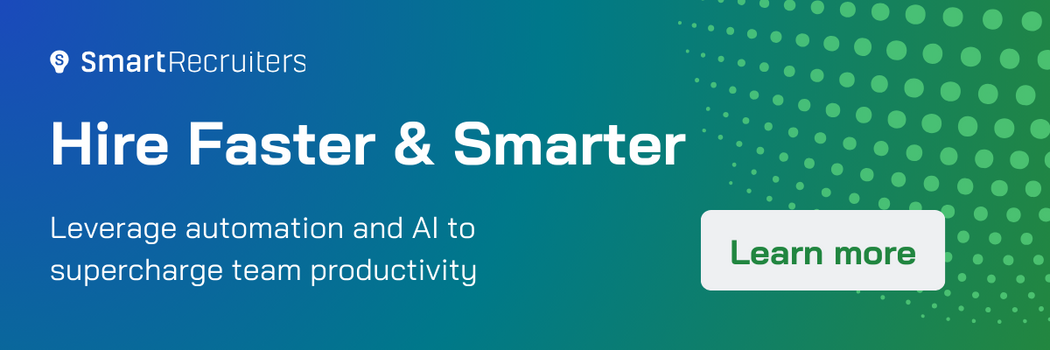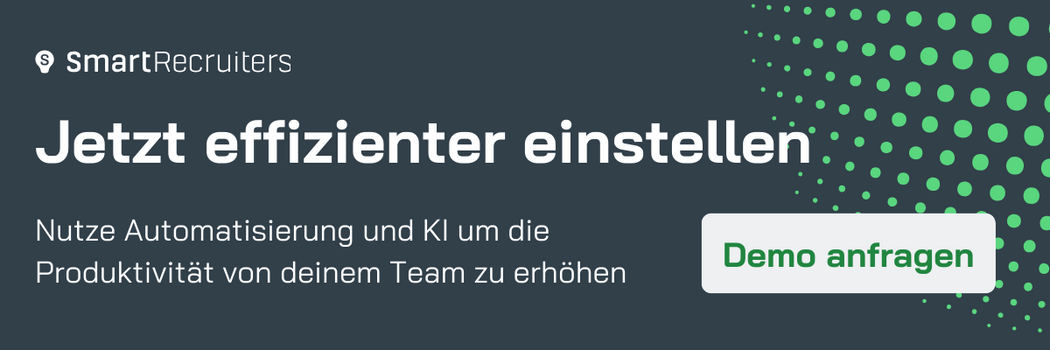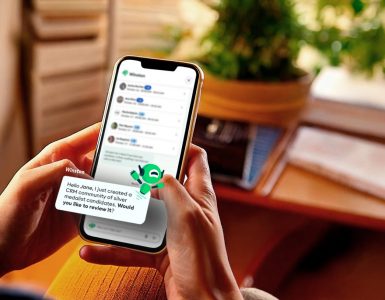Welcome to our Awesome New Series (SmartTable!) with the smartest minds in Human Resources and Recruiting coming together to discuss the nature of their work and the future of our industries.
Since social media entered the scene it has been changing the way people communicate, and now it’s changing the way we work. Transparency is no longer a luxury, it’s something both candidates and employees are demanding – social media provides the platform.
For our inaugural SmartTable our HR experts will discuss how Social Media changed HR and how it will change HR in the future.
1. In the most overarching way, how has social media changed HR?
 Rory Trotter: It has fundamentally changed the way we engage with talent. Candidates have unprecedented accessibility to recruiters and hiring managers. They can interact with us via channels like Facebook, Linkedin etc. in a way that wasn’t possible even five years ago. To initiate contact with a recruiter you didn’t know, you used to have to call and hope you could get a few minutes for an informational interview. Now you just need their Twitter handle.
Rory Trotter: It has fundamentally changed the way we engage with talent. Candidates have unprecedented accessibility to recruiters and hiring managers. They can interact with us via channels like Facebook, Linkedin etc. in a way that wasn’t possible even five years ago. To initiate contact with a recruiter you didn’t know, you used to have to call and hope you could get a few minutes for an informational interview. Now you just need their Twitter handle.
 Janine Truitt: It’s hard for me to say that HR will never be the same as a whole due to the impact of social media. There are several other important reasons why HR will never be the same- like technology, the economy, a global workforce etc.
Janine Truitt: It’s hard for me to say that HR will never be the same as a whole due to the impact of social media. There are several other important reasons why HR will never be the same- like technology, the economy, a global workforce etc.
Social media is an opportunity to amplify what we do in HR. It’s an opportunity to teach and learn, brand and collaborate, and most importantly to connect with people that you would never have the access to without social media.
 Steve Browne: The most encouraging way that HR has “changed” because of social media is an awareness of others out there that actually practice HR !! It’s more of a revelation than you think. HR is one of the most siloed professions around. Social Media showed us that HR is a relevant, vibrant community that wants to impact business and remain relevant. Before Social Media, people were just screaming in the wind.
Steve Browne: The most encouraging way that HR has “changed” because of social media is an awareness of others out there that actually practice HR !! It’s more of a revelation than you think. HR is one of the most siloed professions around. Social Media showed us that HR is a relevant, vibrant community that wants to impact business and remain relevant. Before Social Media, people were just screaming in the wind.
 Salima Nathoo: Social Media is the evolution HR needed to raise its game in influencing people, process and profits of an organization – beyond policy. A smart company understands that an empty seat in the boardroom is longer acceptable in discussions of forecasting, budgeting and strategy – HR is marketing & communication’s counterpart, it is the face of the company’s internal and external brand. Not convinced? Ask yourself what the cost is of being unknown, disliked and worst, ignored in the industry and job market?
Salima Nathoo: Social Media is the evolution HR needed to raise its game in influencing people, process and profits of an organization – beyond policy. A smart company understands that an empty seat in the boardroom is longer acceptable in discussions of forecasting, budgeting and strategy – HR is marketing & communication’s counterpart, it is the face of the company’s internal and external brand. Not convinced? Ask yourself what the cost is of being unknown, disliked and worst, ignored in the industry and job market?
2. What social media moment – if any – made you think HR will never be the same?
 Rory: A man named Philippe Dubost put together an Amazon.com themed resume that spread across so many channels that my mother (one of the least social media savvy people I know) called me about it. Social going “mainstream” has profound retention implications: Talented professionals at all levels can now (cheaply) market themselves to prospective employers in a way that’s never been possible before. Employee engagement is more critical than ever because it’s easier than ever to find new opportunities if you’re good.
Rory: A man named Philippe Dubost put together an Amazon.com themed resume that spread across so many channels that my mother (one of the least social media savvy people I know) called me about it. Social going “mainstream” has profound retention implications: Talented professionals at all levels can now (cheaply) market themselves to prospective employers in a way that’s never been possible before. Employee engagement is more critical than ever because it’s easier than ever to find new opportunities if you’re good.
 Janine: When I found Twitter chats, I knew a revolution was happening.
Janine: When I found Twitter chats, I knew a revolution was happening.
As someone who has bought into social media and its value, I believe it has elevated HR in global proportions – where we no longer are imprisoned by working in silos. Social media has opened up our internal discussions and has allowed for collaboration between professionals across industries, professional rankings etc. We have effectively created a way to disseminate and curate HR knowledge. That is powerful.
 Steve: The first time I saw someone Tweeting during an HR Conference presentation. The crowd overwhelmingly wanted the person to pay attention and not be rude. The speaker stopped them and said, “No. In fact, I’d love all of you who are on Social Media to keep your phones, tablets, computers on and Tweet away.” It was freeing to see that we could get great HR content out to many people at once – and it still is !!
Steve: The first time I saw someone Tweeting during an HR Conference presentation. The crowd overwhelmingly wanted the person to pay attention and not be rude. The speaker stopped them and said, “No. In fact, I’d love all of you who are on Social Media to keep your phones, tablets, computers on and Tweet away.” It was freeing to see that we could get great HR content out to many people at once – and it still is !!
 Salima: #SHRM13 was a trending hashtag in the U.S. when 15,100 global HR professionals convened in Chicago to curate the future at this year’s Society for HR Management Annual Conference and Exhibition (SHRM). The Hot Topics: innovation, entrepreneurship and learning. Topics that speakers like Fareed Zakaria, Blake Mycoskie, and Hillary Rodham Clinton elevated in the context of Social Media in HR and its role in giving back, building community, education, shaping a nation and fueling globalization.
Salima: #SHRM13 was a trending hashtag in the U.S. when 15,100 global HR professionals convened in Chicago to curate the future at this year’s Society for HR Management Annual Conference and Exhibition (SHRM). The Hot Topics: innovation, entrepreneurship and learning. Topics that speakers like Fareed Zakaria, Blake Mycoskie, and Hillary Rodham Clinton elevated in the context of Social Media in HR and its role in giving back, building community, education, shaping a nation and fueling globalization.
3. What’s the first step in integrating social media into your approach to HR and hiring?
 Rory: The big thing is getting your recruiting and/or HR team to understand the value proposition. In many organizations where key social media channels aren’t used to source and attract talent, the recruiters aren’t active in the space(s) themselves. Once your recruiters understand the power of social via their own personal experiences, harnessing the relevant channels to identify and recruit talent is a logical (sometimes even intuitive) progression.
Rory: The big thing is getting your recruiting and/or HR team to understand the value proposition. In many organizations where key social media channels aren’t used to source and attract talent, the recruiters aren’t active in the space(s) themselves. Once your recruiters understand the power of social via their own personal experiences, harnessing the relevant channels to identify and recruit talent is a logical (sometimes even intuitive) progression.
 Janine: The first step to integrating social media into hiring and your approach to HR is to decide what your message will be. There is nothing worse than have a disjointed message and prematurely jumping into social media because others are doing it. Figure out what makes you unique, why employees continue to work for you, what you’re offering etc. and create a story that is both compelling and consistent.
Janine: The first step to integrating social media into hiring and your approach to HR is to decide what your message will be. There is nothing worse than have a disjointed message and prematurely jumping into social media because others are doing it. Figure out what makes you unique, why employees continue to work for you, what you’re offering etc. and create a story that is both compelling and consistent.
 Steve: Teach people to understand the forums and alleve their fears. I know this isn’t the “silver bullet” of full integration, but people still don’t get Social Media. Showing people how the forums have a much larger reach than any department could ever offer is key. It shows a return on why you want to use Social Media instead of just following the crowd.
Steve: Teach people to understand the forums and alleve their fears. I know this isn’t the “silver bullet” of full integration, but people still don’t get Social Media. Showing people how the forums have a much larger reach than any department could ever offer is key. It shows a return on why you want to use Social Media instead of just following the crowd.
 Salima: Start by auditing the engagement and behavior of competitors and brands that are doing it well. Spend time on a few of the platforms where they have an active presence and review their career site. Note what they are sharing, how people are reacting/engaging, and how this aligns with the brand itself. It’s also important to audit your own internal and external communication to ensure its on brand. Never show up without due diligence and strategy.
Salima: Start by auditing the engagement and behavior of competitors and brands that are doing it well. Spend time on a few of the platforms where they have an active presence and review their career site. Note what they are sharing, how people are reacting/engaging, and how this aligns with the brand itself. It’s also important to audit your own internal and external communication to ensure its on brand. Never show up without due diligence and strategy.
4. What’s the biggest liability that social media adds to HR professionals and their companies?
 Rory: It is difficult to control messaging when you have multiple parties speaking to prospective candidates on behalf of your organization. Ideally, your HR generalists, recruiters, and hiring managers are communicating information to potential hires that is aligned with your company’s values. This isn’t always the case, however, and so anytime you give multiple parties the ability to use social media channels as a platform to represent your organization you’re taking a huge risk.
Rory: It is difficult to control messaging when you have multiple parties speaking to prospective candidates on behalf of your organization. Ideally, your HR generalists, recruiters, and hiring managers are communicating information to potential hires that is aligned with your company’s values. This isn’t always the case, however, and so anytime you give multiple parties the ability to use social media channels as a platform to represent your organization you’re taking a huge risk.
 Janine: The risk to HR is there is always the possibility that proprietary, confidential or personal information can be leaked. This is especially true in sectors where intellectual property or trade secrets may be at stake. In healthcare, it is the concern of protected patient information being shared. The liability is that company information can be shared with the world with a click. The lack of control around social media is disconcerting to HR.
Janine: The risk to HR is there is always the possibility that proprietary, confidential or personal information can be leaked. This is especially true in sectors where intellectual property or trade secrets may be at stake. In healthcare, it is the concern of protected patient information being shared. The liability is that company information can be shared with the world with a click. The lack of control around social media is disconcerting to HR.
 Steve: The biggest liability is that employees now have a public forum to be harsh and nasty if they want. Mind you, employees have had negative opinions long before Social Media. But, now it can be a real detriment to businesses. Teaching people about how your company will address Social Media issues is needed. Not a policy, but your approach. Give people the guidelines they need to utilize forums constructively.
Steve: The biggest liability is that employees now have a public forum to be harsh and nasty if they want. Mind you, employees have had negative opinions long before Social Media. But, now it can be a real detriment to businesses. Teaching people about how your company will address Social Media issues is needed. Not a policy, but your approach. Give people the guidelines they need to utilize forums constructively.
 Salima: There are two forms of liability. One, if the team and organization are ill prepared to engage online, consistently, with a human voice backed by strategy and purpose. The other is choosing not to have any form of social media presence. When you show up without having done your homework or fail to show up at all, you put your personal and company brand in the hands of the public. What will Google say?
Salima: There are two forms of liability. One, if the team and organization are ill prepared to engage online, consistently, with a human voice backed by strategy and purpose. The other is choosing not to have any form of social media presence. When you show up without having done your homework or fail to show up at all, you put your personal and company brand in the hands of the public. What will Google say?
5. How can I encourage my employees to be great assets for our company’s recruiting and employer branding efforts?
 Rory: I’m a big extrinsic rewards guy so I like paid referral systems. If an employee recommends someone and your organization hires them, the referring employee should be compensated accordingly. Referral hires are statistically more likely to stay with their organizations than non-referral hires. As such, the investment in a referral system should pay itself back as long as the payouts are reasonable compared against the value added by the filled position.
Rory: I’m a big extrinsic rewards guy so I like paid referral systems. If an employee recommends someone and your organization hires them, the referring employee should be compensated accordingly. Referral hires are statistically more likely to stay with their organizations than non-referral hires. As such, the investment in a referral system should pay itself back as long as the payouts are reasonable compared against the value added by the filled position.
 Janine: Happy employees make for willing ambassadors. Want to encourage employees to contribute to your company’s recruiting and branding efforts do the following: Acknowledge a job well done and help your employees to correct themselves when the job isn’t done well. Get to know your employees and what they value. If you are estranged from your employees – asking them to be brand ambassadors will be viewed as self-serving. Let them know they matter.
Janine: Happy employees make for willing ambassadors. Want to encourage employees to contribute to your company’s recruiting and branding efforts do the following: Acknowledge a job well done and help your employees to correct themselves when the job isn’t done well. Get to know your employees and what they value. If you are estranged from your employees – asking them to be brand ambassadors will be viewed as self-serving. Let them know they matter.
 Steve: Model the behavior you expect in others. Social Media shouldn’t be your culture. Your culture should be reflected in Social Media. HR needs to be the champion of culture at their company. When they do this, you are doing more to be intentional with your employees. They will be your best marketing tool for recruiting if they see that the culture is genuine and allows people to add value. They will want to share their experience, and they will.
Steve: Model the behavior you expect in others. Social Media shouldn’t be your culture. Your culture should be reflected in Social Media. HR needs to be the champion of culture at their company. When they do this, you are doing more to be intentional with your employees. They will be your best marketing tool for recruiting if they see that the culture is genuine and allows people to add value. They will want to share their experience, and they will.
 Salima: Let your employees know the influential role each of them plays in writing the brand story and contributing to collective success. Make it easy for existing and new employees to learn, understand and communicate the core elements of your brand promise and value proposition. Existing internal social collaboration & communication tools are a great way to accomplish this, crowd-source ideas and run a pilot. Make it fun with some gamification. Finally, recognize those who do it well.
Salima: Let your employees know the influential role each of them plays in writing the brand story and contributing to collective success. Make it easy for existing and new employees to learn, understand and communicate the core elements of your brand promise and value proposition. Existing internal social collaboration & communication tools are a great way to accomplish this, crowd-source ideas and run a pilot. Make it fun with some gamification. Finally, recognize those who do it well.
Stay tuned for our next SmartTable and see what the experts are saying about the way we work.
















